When North Chicago-based AbbVie employees returned to the office earlier this month, they faced two sets of rules based on whether they’d received COVID-19 vaccines.
Vaccinated workers were not required to wear masks or social distance. Those without shots were told to undergo weekly on-site COVID-19 testing, wear masks and social distance.
“Vaccination is the most effective way to keep people safe from COVID-19 and stop the spread of the virus,” the pharmaceutical company wrote in an email to employees, obtained by the Tribune. “The health and safety of our workforce is our top priority, and we will continue our enhanced safety protocols at all our sites.”
AbbVie said in a statement that it is focused on ensuring the safety of its employees, but the company did not make anyone available to further discuss the policy.
As companies across the Chicago area welcome workers back to offices, they’re often labeling them as either vaccinated or unvaccinated, with different treatment for each group. It can be a delicate issue — given many people’s strong feelings about vaccination — that companies are handling differently.
Many companies are asking employees if they’re vaccinated. Some are taking workers’ word for it, while others are asking for proof.
Some workplaces are requiring all their employees be vaccinated unless they have medical or religious reasons not to be. Still others are not mandating the shots but requiring weekly COVID-19 tests and masking for those who don’t have them.
“It’s a balance because employers are starting to encourage employees to come back to work and try to restore some of the camaraderie that existed pre-pandemic, but they also have to be careful about maintaining health and safety in the workplace,” said Gregory Abrams, a partner at Faegre Drinker Biddle & Reath in Chicago. “As with everything COVID-related, employers are dealing with uncharted territory.”
At credit card company Discover, which is headquartered in Riverwoods, only unvaccinated individuals will be required to wear masks and social distance.
BMO Harris Bank’s commercial banking business also is allowing workers who are vaccinated — and choose to disclose that to human resources — to skip wearing masks in the office, said Dawn Feenstra, chief operating officer for commercial banking. Everyone else must wear masks when moving around the office, but not at their desks.
The commercial banking business has about 1,000 employees in the Chicago area who started returning to the office in June.
The University of Chicago recently announced that it expected all employees to get vaccinated and to upload proof of their vaccinations to an online registry. The university is still in the process of deciding on “potential disciplinary actions” for unvaccinated workers who don’t receive exemptions or comply with mitigation measures, spokesman Jeremy Manier said in a statement.
The university said in a July 13 announcement that workers who don’t upload their vaccination cards will be required to undergo weekly COVID-19 tests and wear masks.
Generally, employers have wide leeway in deciding how to handle vaccinations and COVID-19 precautions with workers, legal experts say.
“Employers are allowed to set whatever work rules they want unless there is a law specifically prohibiting it,” said Douglas Brayley, head of employment litigation at law firm Ropes & Gray.
He likened requiring face masks to requiring ties. Both are allowed, and employees who are at-will can be fired for not following those rules, unless there is a specific legally protected reason the employee cannot comply, he said.
It’s also generally acceptable for employers to tell unvaccinated workers that they have to test negative for COVID-19 before returning to work and practice social distancing, unless they have a disability that would prevent them from doing so, Abrams said. Unvaccinated people are not a protected class of workers under the law, he said.
Employers may also ask workers to present their vaccination cards as proof of their statuses, because those cards don’t contain any private, protected health information, said John Litchfield, a partner at law firm Foley & Lardner in Chicago. The cards include only workers’ names and birthdays, which employers already have, and information about when and where they received their shots, and the types of vaccines they got.
Most of the companies Litchfield works with are requiring workers to present proof of vaccination in order to go without masks, he said.
Other Chicago-area employers are taking a different route, mandating vaccines for all workers — something allowed under Equal Employment Opportunity Commission guidelines.
Under those guidelines, employees can ask to be exempted from vaccination requirements because of sincerely held religious beliefs or because of disabilities. But employers don’t have to grant those exemptions if an unvaccinated person would pose a direct threat to others in the workplace, or if accommodating him or her would be an undue burden.
Chicago-based Enlivant, which has more than 200 assisted living and memory care facilities across the country, said earlier this year it was requiring its workers to get at least their first vaccine shots by June 1 or potentially lose their jobs. Loyola Medicine, which has three hospitals in the Chicago area, announced last month it would require workers to get vaccines and, if they don’t qualify for exemptions because of religious or health reasons, they will “face termination of employment.” University of Chicago Medicine and UI Health have also said that they are mandating vaccines for their employees.
ClubExpress, a Schaumburg company with 26 employees, decided to require vaccines for all of its employees before they started returning to the office in June, said Dan Ehrmann, president and CEO of ClubExpress, which provides a cloud-based platform to help clubs and associations run their operations.
The company asked its employees to submit copies or scans of their vaccination cards, as proof that they were vaccinated, and placed those documents in their personnel files.
Only one employee resisted, believing the vaccines to be unnecessary, Ehrmann said. Ultimately, that employee changed course and rolled up his sleeve, he said.
Because all of ClubExpress’s workers are vaccinated, no one is required to wear masks in the office or get temperature checks. They hold meetings in actual conference rooms.
“We wanted to get back into the office, and the only way to do that safely was to insist that people get vaccinated,” Ehrmann said. “We just felt it was important to follow the science and the science said get vaccinated.”
©2021 Chicago Tribune. Visit chicagotribune.com. Distributed by Tribune Content Agency, LLC.
—-
This content is published through a licensing agreement with Acquire Media using its NewsEdge technology.



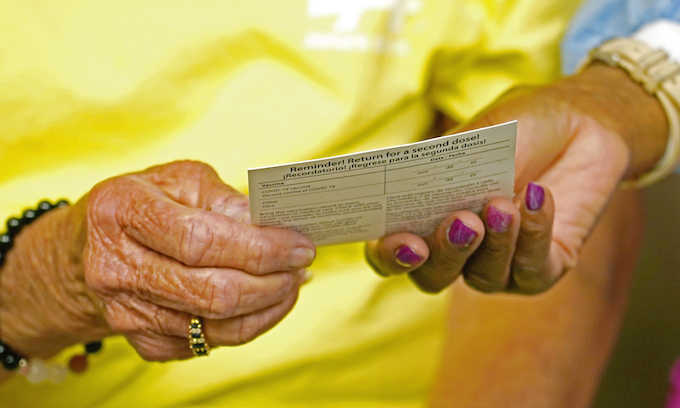

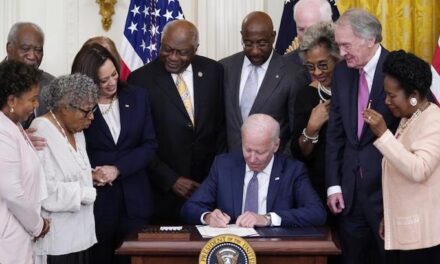
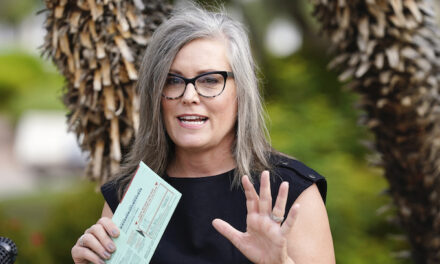
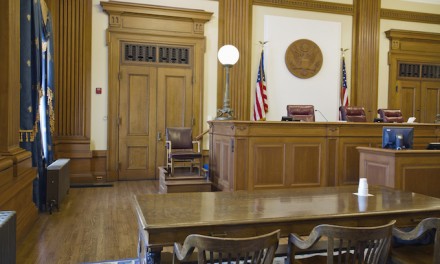






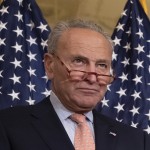




Get used to it folks, the end times are rapidly approaching. Anyone who refuses the mark of the beast will not be able to buy or sell. The inhabitants of the Earth who are left behind, are in for a hard ride.
God, will you please take these stupid people off of this planet—I honestly don’t think I can stand much more.
How is things like this, ANY DIFFERENT THan the “Separate but equal” practices from the 50s and 60s???
The Critical Race Theory woke corporations sure are great to work for, aren’t they? We, the corporation, will tell you what to do in your personal lives. If some of you develop blood clots, heart disease, brain problems from the vaccine or drop dead, it is no big deal, because we are the woke corporations.
We are the borg. Individuality is to be stamped out. ONLY The collective exists. You will be assimilated.
More and more we are hearing that it’s the vaccinated who need to be quarantined; they are very much more susceptible to these new variants.